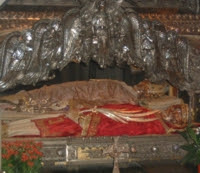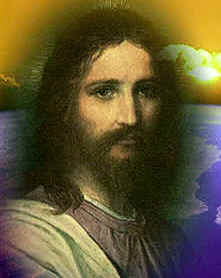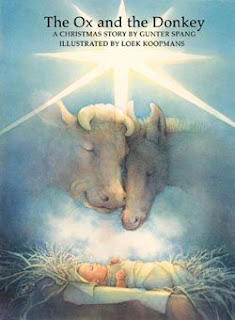HER NAME
.jpg) Solemnity of the Immaculate Conception
Solemnity of the Immaculate ConceptionLk 1:26-38
When Bernadette Soubirous asked the beautiful lady who was appearing to her at Lourdes, France, in 1858, who she was, the lady answered, “I am the Immaculate Conception.” It is surprising that the beautiful lady wanted to be known not by a personal name but by a mysterious event in her life. Of course, we all know by now that the beautiful lady who appeared to Bernadette Soubirous is Mary, the mother of the Lord Jesus.
The Immaculate Conception – this is the name by which Mama Mary revealed herself to Bernadette Soubirous in Lourdes. The Immaculate Conception – this is the name by which Mama Mary wishes to be known and remembered. The Immaculate Conception – this is what God did to her. The Immaculate Conception – Mama Mary wanted us to remember God more than herself. The Immaculate Conception – this is what we celebrate today.
On December 8, 1854, Pope Pius IX defined the Dogma of the Immaculate Conception, making this feast, celebrated in the East since the 8th century, a part of the article of faith of the Universal Church. The dogma states that the Most Blessed Virgin Mary, from the first moment of her conception, in view of her unique vocation as mother of the Son of God, had been free from the stain of original sin.
In view of her vocation as mother of the Son of God – this was the reason why Mama Mary was conceived without original sin. The Immaculate Conception was because of the Divine Motherhood. The Immaculate Conception was God’s work just as her becoming the mother of His Son was purely God’s unique grace given her. We celebrate the Immaculate Conception to remember three things and so live by it.
First, the Immaculate Conception was the triumph of good over evil, of grace over sin. Eve, the first woman, though called “mother of all the living”, became the “mother of all the dead” because of her disobedience. God reversed the effect of Eve’s disobedience by the obedience of Mama Mary. The ‘yes’ of the Blessed Mother is a ‘yes’ to God’s will, a ‘yes’ to goodness, a ‘yes’ to grace. The Immaculate Conception showed us that sin cannot and can never frustrate God’s plan. Goodness is and will always be more powerful than evil. Grace is and will always triumph in the end. The Immaculate Conception was God’s victory even before the ultimate battle on the cross was won by His Son.
Second, the Immaculate Conception affirmed that Mariology is a function of Christology. Mama Mary was conceived without original sin because she would become the mother of Christ. Her preservation from all sin had a definite orientation: her Divine Motherhood. She was given this unique privilege not for her own sake but for the sake of Christ and, therefore, for the whole plan of salvation.
Third, the Immaculate Conception assured us that God supplies the grace needed for the vocation He calls us to. It was for her conceiving Christ the Savior that Mama Mary was conceived without original sin. By the grace of her being immaculately conceived, God prepared Mary for her sublime and unique vocation. While it was true that she remained free as to what response she would give to God’s calling, Mama Mary was nonetheless readied, nurtured, and supported by God’s grace. Without it, she would not have responded to God’s calling the way she did. Without a prior grace from God, Mama Mary would not have been able to accept and fulfill her vocation.
The Immaculate Conception was therefore the fruit of God’s grace and the redemptive mission of Christ. It was not and never was the result of Mama Mary’s efforts. It was not and never was given to her because of her credentials or personal virtues. It was not and never due her. It was pure grace, a gift from God gratuitously given for our sake.
At Lourdes, France, barely four years after the definition of the dogma we solemnly celebrate today, Mama Mary gave Bernadette Soubirous the name by which she wished to be known and remembered. She was and always is the “Immaculate Conception”. She wanted us to know God even more and remember God always. She wanted us to bear in mind that grace always triumphs over evil, that we should be at the service of God, and that God never fails to supply the grace needed for the vocation He calls us to. Remember these and know Mama Mary. Know Mama Mary and remember God. Let us allow grace to triumph over evil by keeping our selves always at the service of God with the aid of the grace that God Himself never fails to give us.
“The Immaculate Conception” – this is the name of Mama Mary by which all generations call her “blessed”.

.jpg)




